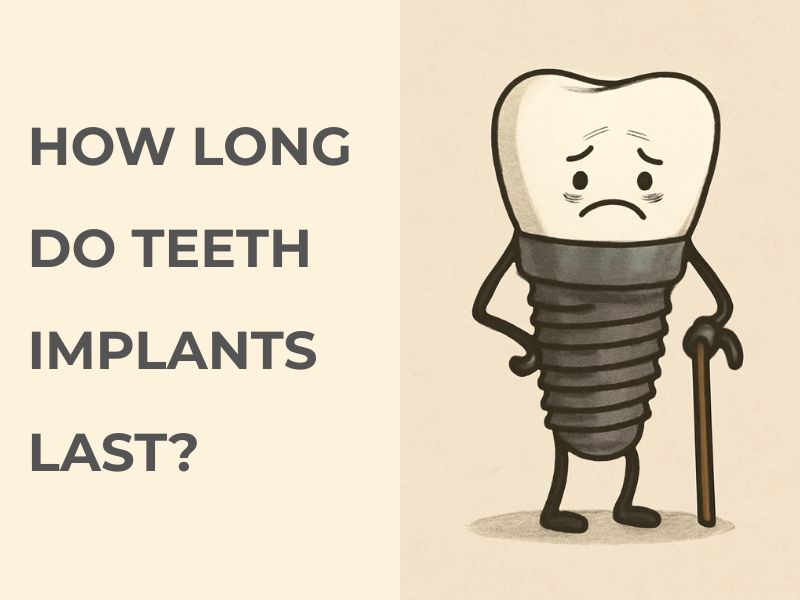
The lifespan of dental implants can vary depending on many factors, but with proper care and favorable conditions, implants can last a lifetime. The implant itself (the titanium screw that is inserted into the jawbone) and the prosthetic crown that is attached to it can have different lifespans; it will therefore be necessary to assess the lifespan of the implant system in relation to these two parts.
Life span of the dental implant:
Titanium implants can usually last a lifetime if the osseointegration (fusion with bone) process is successful. In most cases, the implant itself can last for 20 years or more, with some patients even using their implants for 30-40 years.
Life span of the prosthesis/crown placed on the dental implant:
Crowns, bridges, or prostheses placed on the implant usually last between 5 and 15 years. This depends on the quality of the material used, the patient's oral hygiene habits and the mechanical stress applied to the prosthesis. For example, porcelain crowns usually last 10-15 years, while zirconium crowns may last longer.
Factors affecting the lifespan of dental implants:
How long dental implants last depends on the following factors:
Good oral hygiene plays a critical role in the longevity of implants. Peri-implantitis (inflammation of the tissues around the implant) can occur due to poor oral hygiene and lead to implant failure.
A solid fusion of the implant with the jawbone is important for its longevity. Insufficient bone volume or low bone density can affect the stability of the implant.
Habits such as teeth grinding (bruxism) or chewing hard foods can put excessive stress on the implant or prosthesis and shorten its lifespan.
Uncontrolled diabetes, immune system diseases, or conditions affecting bone metabolism (e.g. osteoporosis) can affect the success of the implant.
Correct placement of the implant is vital for its longevity. Procedures performed by an experienced dentist or maxillofacial surgeon reduce the risk of complications.
Clinics using quality materials and advanced technology offer more durable and reliable results.
The material (e.g., porcelain, zirconium, or acrylic) and design of the prosthesis placed over the implant affect its durability. For example, zirconium crowns are more aesthetic and durable.
It is also important that the prosthesis is correctly adjusted (bite fit); otherwise, cracking or loosening of the prosthesis may occur due to overloading.
Life expectancy and replacement processes:
The implant itself: With successful osseointegration, implants can usually last a lifetime. However, in rare cases (e.g., trauma or severe infection), the implant may need to be replaced.
Denture replacement: Crowns or dentures can be replaced within 5-15 years due to wear, cracking, or aesthetic concerns. Denture replacement is a relatively simple procedure that can be done without affecting the implant itself.
Maintenance and repair: Minor problems (e.g., a loose screw or a small crack) can usually be easily repaired and extend the life of the implant.
With our guaranteed treatments, we are always here for you.
Don’t hesitate to contact us, We will be happy to help anytime.



